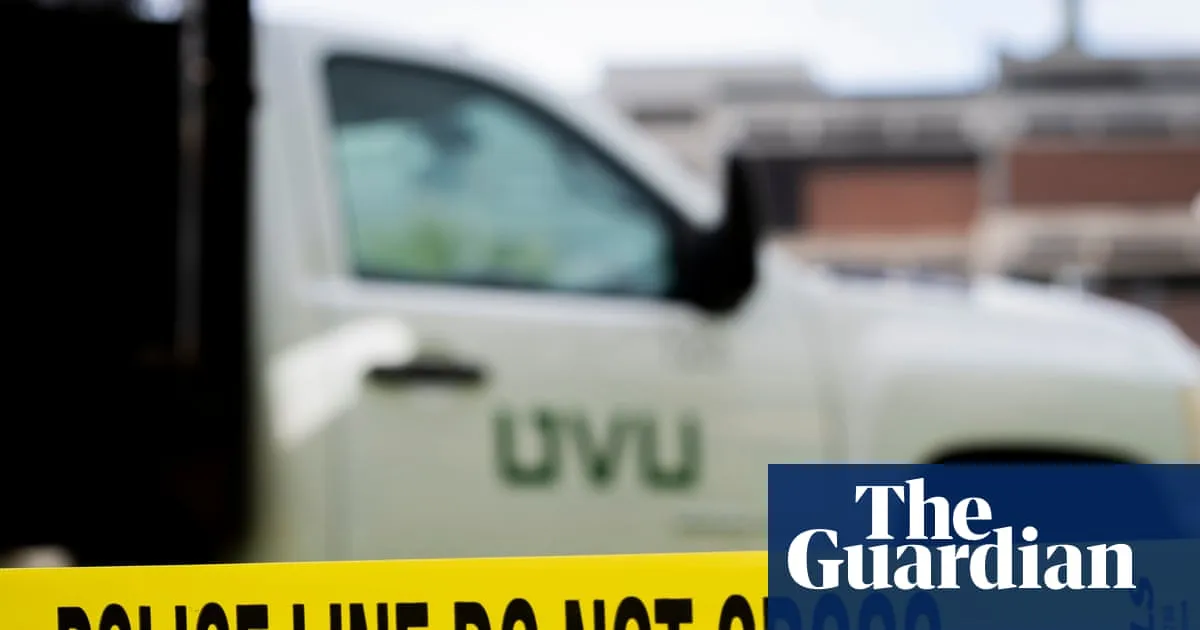
As federal and state authorities investigate the tragic shooting of far-right activist Charlie Kirk at a university in Utah, attention is focusing on a recently enacted state bill that permits individuals with concealed-carry permits to carry firearms on college campuses. This legislation has reignited discussions surrounding gun laws in Utah, which has been recognized for its permissive stance on firearms since 2021.
Utah’s gun laws have evolved significantly, with the state allowing permitless open and concealed carry of weapons since 2021. Prior to the passage of HB 128, firearms were required to be concealed when carried on college campuses. The new law, effective from August, allows individuals with the appropriate permits to carry firearms openly, raising concerns among university staff about the implications for classroom safety and emergency protocols.
Staff members expressed apprehensions regarding scenarios that might require students to act as armed responders, especially in laboratory settings where dangerous chemicals are present. This tragic incident has brought the implications of the law into sharp focus, particularly as it coincides with the shooting, allegedly perpetrated by 22-year-old Tyler Robinson.
It remains unclear whether Robinson was legally permitted to own the hunting rifle used in the shooting or whether he was authorized to have it on a university campus. The timing of the shooting in relation to the passage of HB 128 has propelled the law into national headlines, prompting discussions about its potential consequences.
Utah’s legislative framework is notably friendly to the Second Amendment, lacking extreme risk protection orders (ERPOs) that allow individuals to petition for the temporary removal of firearms from those deemed a threat. The state is among the 29 that permit concealed carry without a permit, and while there are laws aimed at removing firearms from those in crisis, they require individuals to self-report in the federal background check system.
When Utah lawmakers have concentrated on campus safety, their efforts have primarily targeted K-12 schools, where there is a stronger expectation for campuses to maintain a closed environment. Instead of implementing stricter gun access policies or training requirements for concealed-carry applicants, the state has favored school hardening strategies. These include the installation of automatic locking doors, surveillance cameras, and fencing to deter shooters and ensure a rapid response to potential threats.
For instance, HB 119, which passed last year, incentivizes K-12 teachers to undergo training so they can securely keep firearms in their classrooms. Meanwhile, HB 84, a comprehensive piece of legislation passed in 2024, mandates that classrooms be equipped with panic devices and that at least one armed individual, such as a school resource officer or security guard, be present on campus daily.
Proponents of Utah’s gun laws argue that ensuring easy access to firearms can deter various threats, from home invasions to potential mass shootings in “soft targets” like malls and campuses. Johnny Richardson, a Utah-based attorney and former editor at the Utah Law Review, noted that the prevailing view is that the Second Amendment should allow minimal barriers to exercising the right to bear arms. “There’s a mentality that there should be as few obstacles as possible,” he stated.
However, critics argue that while permitless carrying might deter some criminal activities, it is inadequate against politically motivated violence. Brandon del Pozo, an assistant professor of medicine and health policy at Brown University, emphasized that the deterrent effect of concealed carry is limited to rational actors and does not account for those driven by political extremism.
Del Pozo, who has a background in law enforcement, highlighted the difficulties in ensuring public safety in environments where firearms are prevalent. He pointed out that effective planning for events, such as rallies or marathons, requires understanding the implications of widespread concealed carry. “In places like Utah where there’s going to be a lot of guns in circulation, you have to decide when you’re going to carve out spaces where people are screened for guns,” he explained.
During a press conference following the shooting, Jeff Long, the Utah Valley campus police chief, revealed that six officers were assigned to the Charlie Kirk event, which drew a crowd of approximately 3,000 people. The department coordinated efforts with Kirk’s personal security team, underscoring the complexities involved in managing security in today's climate of heightened tensions and armed citizens.